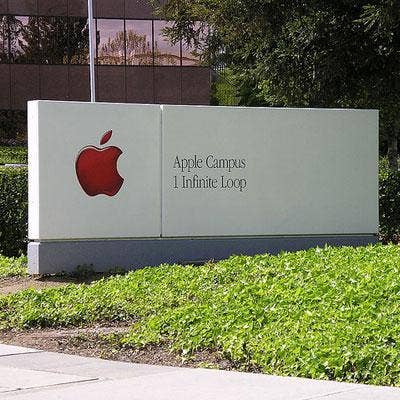Apple Warns Trump’s China Tariffs Would Raise Prices, Lower Growth

Apple says that the Trump administration’s proposed tariffs on $200 billion worth of imports from China would raise the cost of doing business in the U.S., increase prices of its products for consumers and give a boost to foreign competitors.
The letter to the U.S. Trade Representative, dated Sept. 5 but first reported Friday by Bloomberg, was written just before U.S. President Donald Trump said he was ready to expand the tariffs to cover a further $267 billion worth of imports from China.
Trump on Friday told reporters on Air Force One that he wants to show China that he can be strong on the trade issue, Reuters reported Friday.
[Related: Tariff Threats Hit IT: IBM Raises Prices As Gigabyte Sees Possible Hike]
Trump said the $200 billion in tariffs could be implemented very soon, while an additional $267 billion in tariffs could be readied on short notice, Reuters said.
Apple, in an unsigned public version of its letter which was posted on CNBC and multiple other news sites, wrote that the proposed $200 billion tariff proposed by the U.S. affects not only Apple products imported into the U.S. from China, but also much of the equipment that Apple uses internally to run its operations and data centers in the U.S.
Among the Apple-branded products that will be covered in whole or via certain components by the tariffs are the Apple Watch, Apple Pencil, Air Pods, Mac mini, and related adapters, cables, and chargers, the company wrote.
Also affected will be Apple-designed components and custom tooling for its U.S.-based manufacturing and repair facilities, testing equipment for its development labs, and IT equipment for Apple's U.S.-based data storage.
Furthermore, such tariffs will also result in lower U.S. economic growth and higher prices for U.S. consumers, Apple wrote. “More broadly, tariffs will lead to higher U.S. consumer prices, lower overall U.S. economic growth, and other unintended economic consequences,” the company said.
While the impact of tariffs is traditionally focused on exports from where the final assembly of a product is done, in China in this case, they do not reflect the value that Apple generates in the U.S., the company wrote.
"Every Apple product contains parts or materials from the United States and is made with equipment from U.S.- based suppliers. And every one of these products reflects the labor of 2 million U.S. workers across all 50 states, including our 80,000 direct employees, the 450,000 employees at our 9,000 U.S. suppliers, and 1.53 million U.S. app developers.1 We expect our total direct contribution to the U.S. economy over the next five years to exceed $350 billion," Apple wrote.
Apple also noted that tariffs on goods imported from China will also impact the business of several major U.S. companies on which Apple depends for components for its products that are made in China, including vertical-cavity surface-emitting later maker Finisar, advance glass processing company Corning, and semiconductor manufacturer Analog Devices. Apple also reminded the U.S. Trade Representative that Apple is the largest U.S. corporate taxpayer to the U.S. Treasury, and is a major payer of taxes to local and state entities.
“It is difficult to see how tariffs that hurt U.S. companies and U.S. consumers will advance the Government’s objectives with respect to China’s technology policies. We hope, instead, that you will reconsider these measures and work to find other, more effective solutions that leave the U.S. economy and U.S. consumer stronger and healthier than ever before," the company wrote.
Apple did not respond to a request for further information by press time.